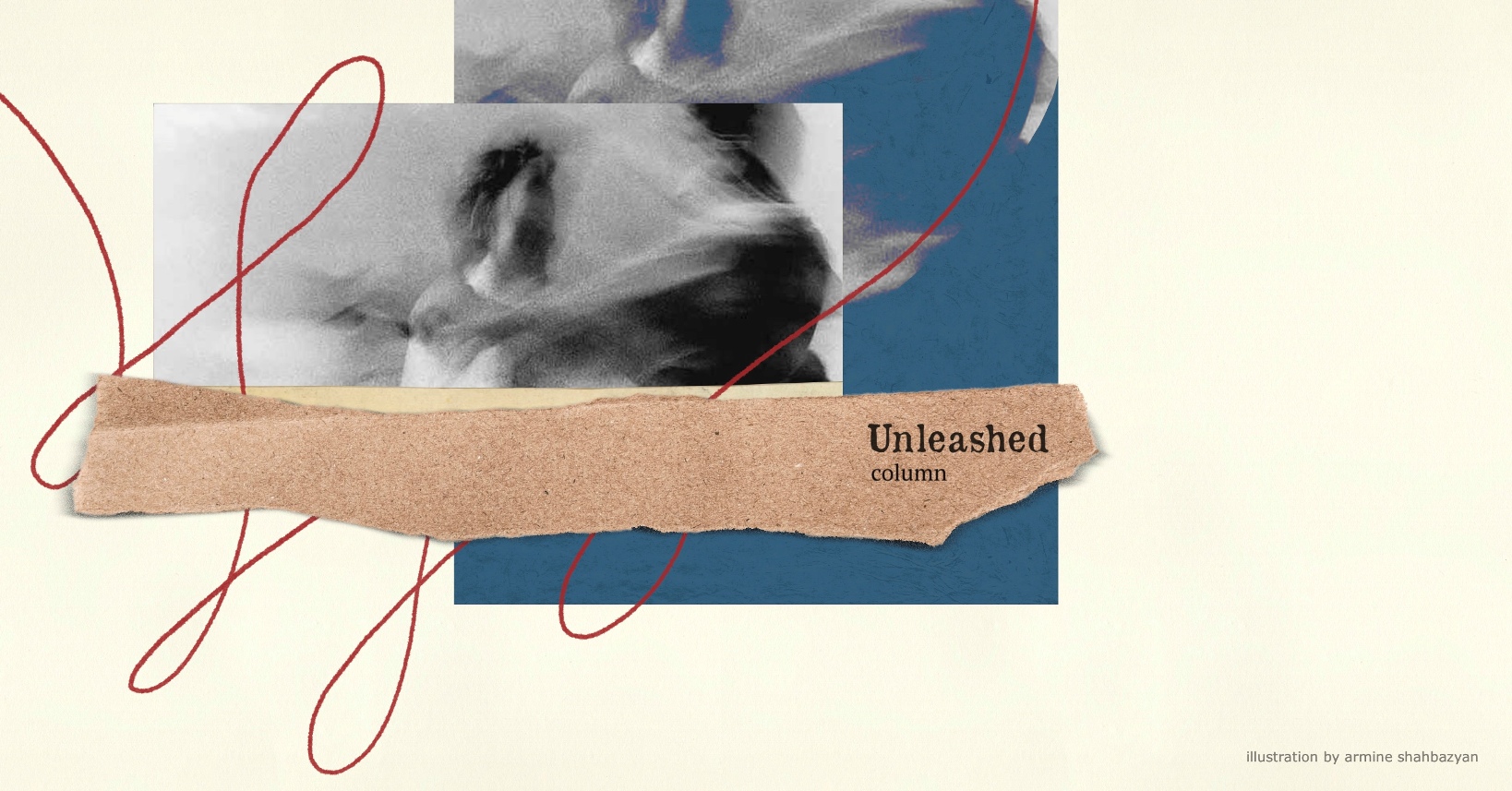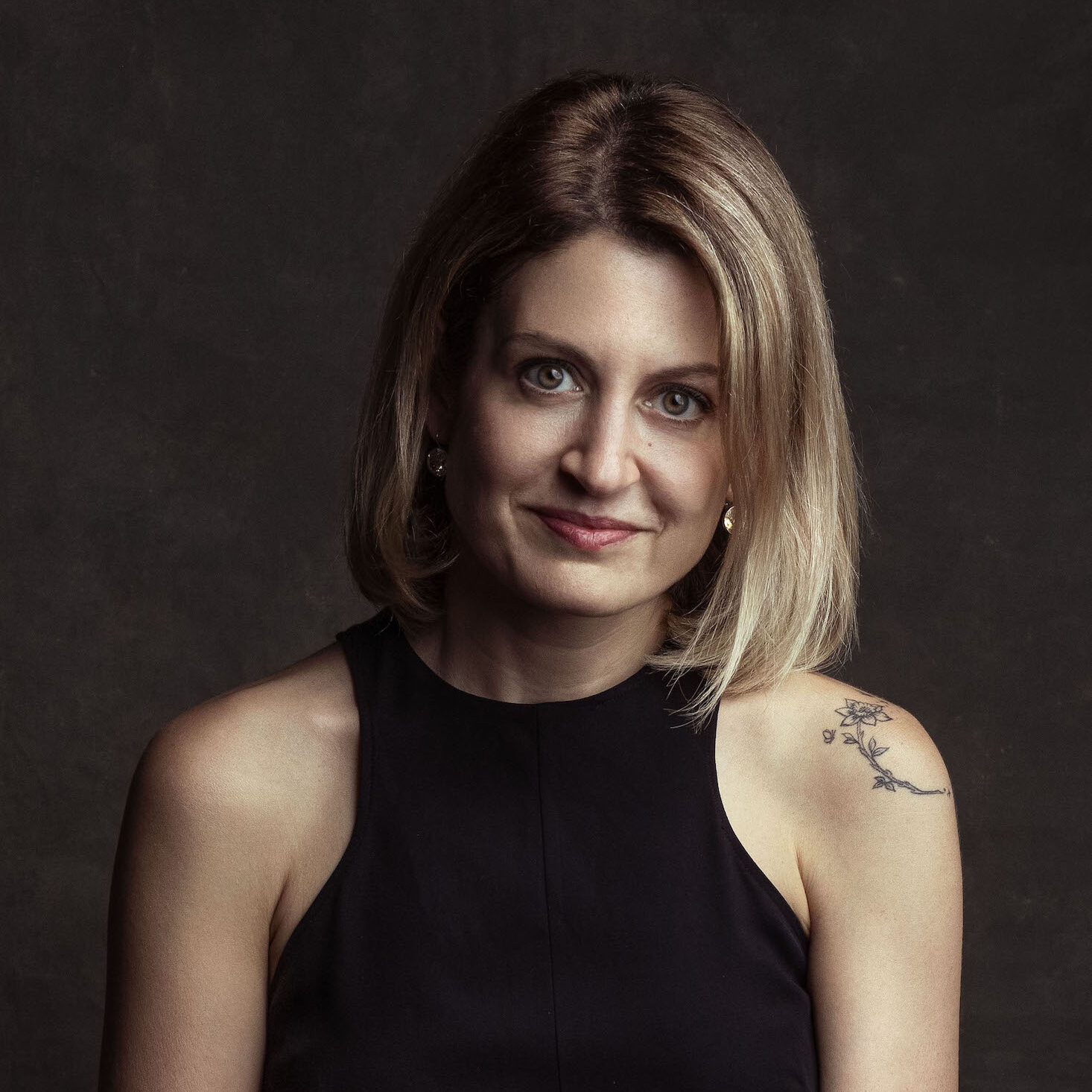

The pre-baptism meeting was held in a small, sunlit room at the back of the Armenian church in Montreal, as we prepared for my nephew’s christening. I was to be the godmother, a role I was immensely honored to assume. Seated across from me was the priest, a figure of authority and tradition in our community. Next to him sat the godfather-to-be, my brother-in-law’s best friend, who, despite not being Armenian, was given notable importance. In contrast, my role as godmother seemed diminished, an imbalance that didn’t go unnoticed.
As we discussed the ceremony’s details, the conversation took an unexpected turn. The priest, addressing my sister, commented that she needed to have at least two more children “to make up for the losses of the Armenian Genocide.” My sister laughed uneasily as he then turned to me to ask about my own number of offspring. Before I could respond, she intervened, perhaps sensing my discomfort: “Not only has Sheila moved to Armenia and dedicated her life to it, but she works tirelessly for our cause,” my sister chimed in my defense. “It shouldn’t matter whether she has any children.”
The priest’s expression softened, a flush of embarrassment coloring his cheeks as he apologized. It wasn’t the first time I had encountered such expectations. The pressure for Armenian women to bear children as a form of cultural preservation is a narrative deeply entrenched in our national identity, echoing loudly even today. And while I certainly appreciated that my little sister came to my rescue, the truth was that my non-motherhood was not something I felt I should have to justify with some equal or greater sacrifice.
I am proudly childfree by choice, a decision that has liberated yet complicated my life in ways I’m still unraveling. Even deciding to write and publish this piece has been particularly confronting. The prevalent notion in many cultures, not just Armenian, that women are essentially destined to be mothers, positions those of us who choose differently as anomalies. Traditional, patriarchal norms see women’s bodies as baby-making machines designed to replenish the population, and tie a woman’s worth to her reproductive status. It’s a reductive view that I reject, but have learned to navigate, though not without difficulty.
The pressures are multifaceted. On the one hand, there’s the romanticized image of motherhood as the zenith of a woman’s achievements and the ultimate source of her peace, joy, and fulfillment. But the paths to such states are as diverse as the individuals seeking them. My life has been rich with experiences and accomplishments that have nothing to do with children. Films and pop culture have long perpetuated the myth that women are incomplete without a child or a partner. It took me almost four decades to embrace that my worth and wholeness depend on nobody else but me.
My decision not to procreate is as much a personal lifestyle choice as it is a political one, an affirmation of sovereignty and self-determination over my body and a declaration of autonomy over my future. And I do not for a second take for granted how fortunate I am to have been born in a day and age to open-minded parents in a free-thinking, developed and democratic country which empowered me to define for myself the contours of a meaningful life. It wasn’t always this way, and for many around the world, it still isn’t.
As to my certainty about not wanting children of my own, it has evolved over time. Ruby Warrington, in her phenomenal book Women Without Kids, introduces the concept of the “Motherhood Spectrum.” On this, I’ve generally found myself leaning towards the center-negative, feeling mostly indifferent rather than strongly averse to motherhood. However, as I reached the age of 42, questions about whether I had frozen my eggs began to surface and intensified. My usual response, half-joking that there was likely nothing left to freeze, often failed to satisfy those inquiring.
So, to put the issue to rest, I visited a fertility specialist in Yerevan, simply to inform myself. Much to my surprise, he found that I indeed had plenty left to freeze and urged me to do so immediately. He described the process as involving hormone injections with side effects such as bloating, mood swings, pain and cramping, and explained that the extraction would be performed under general anesthesia, leading to more pain and cramping post-procedure. He then strongly suggested that I find a sperm donor, as fertilizing the eggs before freezing them could maximize their viability for future use.
I couldn’t wait to leave the room. Rather than inspiring me to pursue egg freezing, the consultation only reinforced my decision against it. Reflecting on the extensive measures some of my friends had taken—investing significant time, money and enduring considerable suffering—to have a baby, with or without a partner, I supported them wholeheartedly. But I realized that my desire didn’t match theirs, and so it felt right to let go of this option and focus on what truly mattered to me. And once I completely embraced being childfree, I could finally breathe a sigh of relief.
Societal narratives often suggest that women without children miss out on a profound emotional experience, one that they will eventually regret. But what about the emotional and intellectual growth that comes from pursuing other passions? What if the energy typically reserved for child-rearing were redirected towards leadership, innovation, or artistic creation? What if, instead of perpetuating traditional roles, we first focused on healing from the traumas inflicted by longstanding patriarchal structures? What could we achieve if more women had the freedom to choose without judgment?
In the last three years since solidifying my choice of non-motherhood, I have been able to fully immerse myself into these questions. And the double standards are evident. While women are expected to naturally incline towards motherhood, men are rarely questioned about their paternal instincts. The idea of sacrificing my freedom, time and personal development for the upbringing of another human just doesn’t align with my aspirations. For some, creating life is their calling; for others like me, our creations are not children but the contributions we make through our careers, arts, or social causes.
To those who suggest, “Why not both?” or “You can have it all,” I say: “Well, I just don’t want to.” I also think it’s a bit of a fallacy to believe one can truly “have it all.” Time and energy are finite resources, and having children inevitably strains both. There’s simply no denying that. So, I think if someone is to have a child, they should really, really want it. The idea of being able to “do it all” is just another societal pressure on individuals, especially women, to stretch themselves too thin.
Which is perhaps why a life without children is still met with suspicion and sometimes pity in many circles, reflecting a pronatalist ideology that places parents above non-parents. We need to broaden the conversation around womanhood to include all expressions of female identity. Whether her journey includes children or not, her value is inherent and immeasurable. In advocating for the freedom to choose our paths, be it motherhood, non-motherhood, or anything in between, we celebrate choice and champion a broader movement towards gender equality.
To be sure, my life is abundant without having birthed a child. In that sense, the title I chose for this piece, “Party of One”, is a bit of a misnomer. Because I am not alone. I have two nephews, four godchildren, a vast familial network I was born into, and an even larger chosen family of cherished friends all over the world. My relationships with partners have varied, evolving as I continue to grow into the person I am destined to be in this singular, precious life I’ve been given.
And to those who, like me, live without children, whether by choice or circumstance, I see you. You are not alone either. Together, we form an “unsung sisterhood,” as Ruby puts it, and we need to support each other.
See all [Unleashed] articles here
Listen to Sheila’s personal reading of “Party of One”

Sheila Paylan is an international human rights lawyer and former legal advisor to the United Nations. Now based in Yerevan, she regularly consults for a variety of international organizations, NGOs, think tanks, and governments.


Please know that your sisterhood includes women who chose motherhood as a leap of faith and lived a life rich in moments of ambivalence and joy and everything in between after taking that leap. In my case, as the mother of two (now grown) children, I have fielded comments by Armenians of both sexes who wanted to know whether I’d be having a third child to grow the Armenian population rather than simply replace myself and my spouse. The fear of Armenians disappearing from the face of the earth in the aftermath of red and white genocide and ethnic cleansing manifests itself in so many ways in our daily experience. Thank you for sharing yours. My hope is that the exchange you shared involving the Montreal priest inspired him to evaluate his thinking on expectations about Armenian women and motherhood. His initial reaction as reported shows that this may be a real outcome.
Dear Georgi,
Thank you so much for your thoughtful and generous comment. I truly appreciate you sharing your own experience, which so beautifully illustrates how these pressures manifest across the entire spectrum of womanhood, whether one chooses to become a mother or not. You’re absolutely right: our sisterhood must include all women, in all their complexity, including those who have navigated the path of motherhood with courage, ambivalence, and love. I’m grateful for your words and your hope—one I share—that the priest, and others like him, continue to reflect and grow.
Sheila….
Let me first state that I find your writing important. You about issues blending your own experiences with topics we all think about( or should be ) but rarely engage in publicly. I cringed with the rude comments of the priest but was inspired by your sister confronting him and perhaps more importantly the thoughts you shared . I agree with Georgi that we can hope that he will see the light.
It is important for our global nation to find the intersection of tradition and advances in our human society. Child bearing is a personal choice. I have friends who have chosen a similar path and it has helped me to understand the importance of being supportive. We have seen the incredible contributions of women in Armenia and the diaspora that have nothing to do with child bearing. We should not judge the path we choose but stand ready to support and grow as individuals. Thank you for sharing your talent.
Dear Stepan,
Thank you so much for your words, they truly touched me. It means a great deal to know that the experiences and reflections I share resonate with others, especially on topics that are often left unspoken.
I deeply appreciate your support and your recognition of the broader conversation we all need to engage in — about tradition, personal choice, and the many ways we contribute to our communities and the world. Your perspective reinforces exactly why it’s so important for us to keep these discussions alive, with empathy and openness.
Thank you again for your encouragement. It gives me even greater motivation to keep writing and sharing.
Warmly,
Sheila